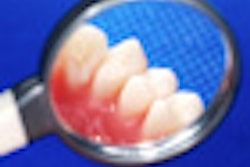The U.S. Food and Drug Administration (FDA) has approved the marketing of the first nucleic acid test that can identify 12 different bacterial types known to cause bloodstream infections.
The test, created by Nanosphere, allows for simultaneous identification of the bacteria and three associated resistance genes in just a few hours after the first sign of bacterial growth. Traditional methods may require two to four days to produce bacterial identification and resistance results, according to the company.
The Verigene GP blood culture nucleic acid test (BC-GP) can identify different types of Staphylococcus (including methicillin-resistant Staphylococcus aureus or MRSA), Streptococcus, Enterococcus (including vancomycin-resistant enterococci or VRE), and Listeria, according to Nanosphere.
The FDA based its decision on a study of 1,642 patient blood samples obtained from incubated blood culture bottles that contained gram-positive bacteria. The study included a comparison of BC-GP and traditional blood culture laboratory methods. The BC-GP results were consistent with traditional blood culture methods in 93% to 100% of the comparisons, according to Nanosphere.



















